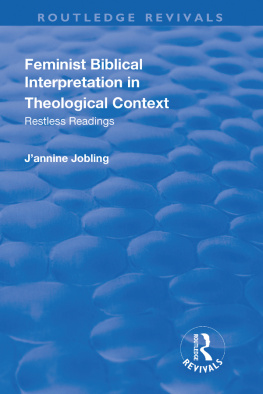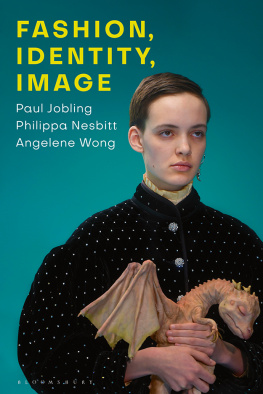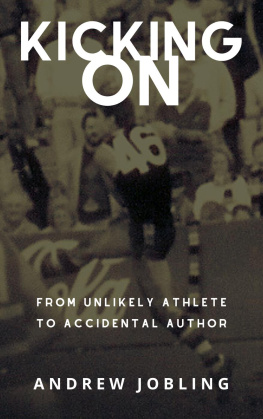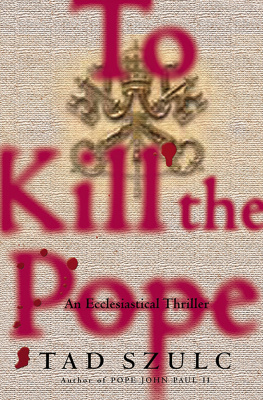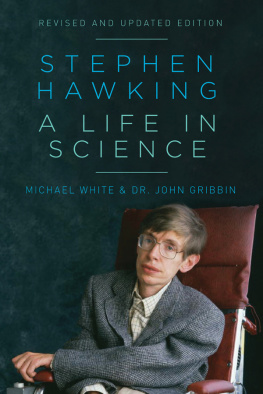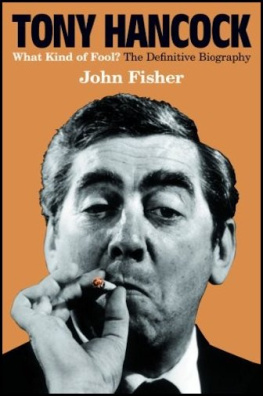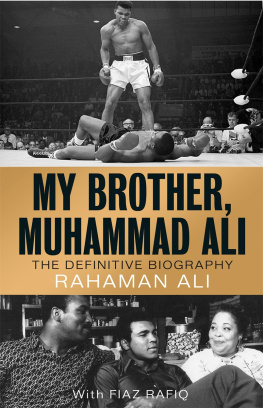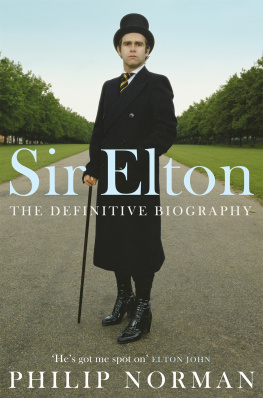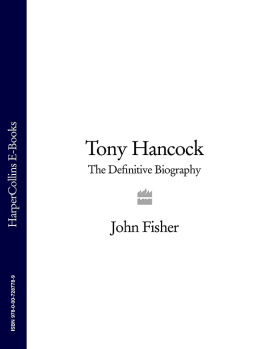John Jobling - U2: The Definitive Biography
Here you can read online John Jobling - U2: The Definitive Biography full text of the book (entire story) in english for free. Download pdf and epub, get meaning, cover and reviews about this ebook. year: 2014, publisher: St. Martins Press, genre: Non-fiction. Description of the work, (preface) as well as reviews are available. Best literature library LitArk.com created for fans of good reading and offers a wide selection of genres:
Romance novel
Science fiction
Adventure
Detective
Science
History
Home and family
Prose
Art
Politics
Computer
Non-fiction
Religion
Business
Children
Humor
Choose a favorite category and find really read worthwhile books. Enjoy immersion in the world of imagination, feel the emotions of the characters or learn something new for yourself, make an fascinating discovery.

- Book:U2: The Definitive Biography
- Author:
- Publisher:St. Martins Press
- Genre:
- Year:2014
- Rating:5 / 5
- Favourites:Add to favourites
- Your mark:
- 100
- 1
- 2
- 3
- 4
- 5
U2: The Definitive Biography: summary, description and annotation
We offer to read an annotation, description, summary or preface (depends on what the author of the book "U2: The Definitive Biography" wrote himself). If you haven't found the necessary information about the book — write in the comments, we will try to find it.
U2: The Definitive Biography — read online for free the complete book (whole text) full work
Below is the text of the book, divided by pages. System saving the place of the last page read, allows you to conveniently read the book "U2: The Definitive Biography" online for free, without having to search again every time where you left off. Put a bookmark, and you can go to the page where you finished reading at any time.
Font size:
Interval:
Bookmark:
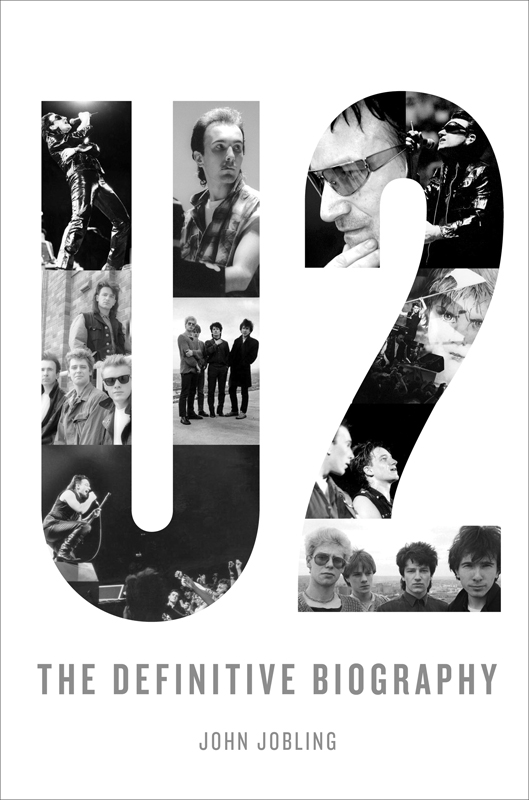

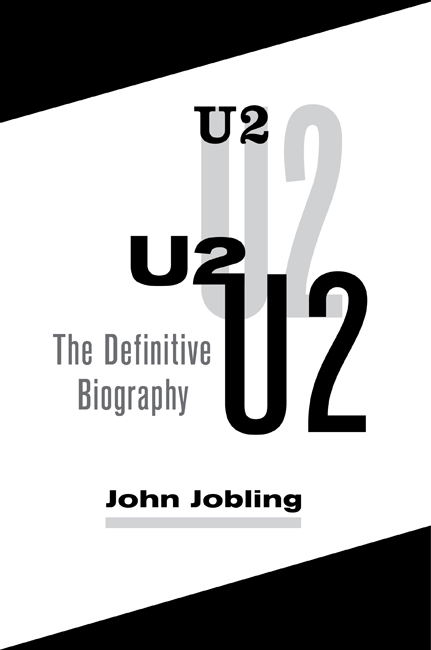
The author and publisher have provided this e-book to you for your personal use only. You may not make this e-book publicly available in any way. Copyright infringement is against the law. If you believe the copy of this e-book you are reading infringes on the authors copyright, please notify the publisher at: us.macmillanusa.com/piracy.
In memory of my father,
John Robert Jobling
Contents
Introduction
U2 is rock-and-roll royalty. Born from the spirit of punk rock in 1976 in Dublin, Ireland, and fronted by the charismatic singer, entrepreneur, and political activist Bono, the band has won the hearts of fans and critics worldwide with their anthemic four-piece sound and professed ideals, and have sold more than 155 million albums in the process. And despite their advancing years, their popularity shows no sign of waning: their 360 Tour in 200911 played to more than 7 million people and was the highest-grossing trek ever, with takings of $736 million.
U2: The Definitive Biography is the first unauthorized biography of U2 to document and analyze their near-forty-year career objectively, going beyond the myth to present a fascinating warts-and-all portrait of the Irish rock band. Featuring previously unpublished photographs and original interviews with U2s closest friends and business associates, the book offers new information on their pre-contract days in Dublin when they begged and borrowed every last penny just to be heard; played to half-empty clubs, having been rejected by every major record label; and clashed with rival gangs in a hotbed of religious intolerance. It takes us deep inside their lives, exploring their intimate relationships, controversial business dealings, and complex spiritual beliefs, including their early involvement in an evangelical Christian group as Bono looked to fill the void left by the death of his mother when he was only fourteen years old, and the ongoing battle between their Christian values and worldly temptations. It also traces their evolution as musicians from raw post-punk champions to political crusaders, avant-gardists to all-conquering stadium rockers, and finally post-modern cyberpunks to revered rock veterans who have achieved unprecedented cross-generational success.
Furthermore, the book examines U2s humanitarian work, particularly Bonos role as spokesman and lobbyist for the poor and AIDS-stricken in Africa. A three-time Nobel Peace Prize nominee, the lead singer has crossed to the other side of the police barricades to become a major player respected by global corporate chieftains, world leaders, and U.S. Republicans and Democrats alike. At the White House, his ability to bend powerful political ears has caused him to become known affectionately as the Pest. In doing so, Bono has altered the political power of celebrity. However, his work has also come under fire from both sides of the picket fence. Certain quarters of the media have branded him a political puppet, liberals have heavily criticized his association with power-hungry capitalists looking to sculpt the world in their own corporate vision, and his fellow campaigners have accused him of lending legitimacy to the G8s role in Africa rather than challenging it. Drawing on exclusive interviews with activists, analysts, and government officials, the book sheds new light on Bonos journey into the shady world of politics, in which the line between charity and personal gain can often become blurred.
Into the Heart
Ireland in the 1970s was a grim and depressing sight, a far cry from the picturesque snowdrops, daffodils, and early-morning dew cited in the countrys Eurovision-winning entry All Kinds of Everything at the dawn of the decade. Ireland was dreary, oppressive, and bereft of hope; ravaged by nationwide inflation, endless public-sector strikes, high unemployment, and high emigration. Dublins north inner city was the epicenter of Irelands crisis. There the buildings were dirty and decrepit, with over 70 percent of the old Georgian tenements without hot running water, according to historical data. You could literally smell the abject poverty. Speaking at the launch of Combat Povertys twentieth anniversary in 2007, Father Peter McVerry recalled that the tough inner-city area of Summerhill, for example, was crawling with ratsrats the size of little kittens and immune from every poison ever invented. Parents would tell you of waking up in the morning and finding a rat on the babys cot. Some blocks of flats had to share an outside toilet and the children had to be washed in the local Sean McDermott Street swimming pool, as they had no baths or showers.
It was an era when the Catholic Church still exercised powerful influence on government policy and the lives of everyday people, particularly in terms of anything that concerned sexual morality. Sex before marriage was a sin and a social evil. Contraceptives were banned. Homosexuality was a crime. Divorce and abortion, also illegal. Even the slightest morally dubious reference found in the media, such as the imported feminist magazine Spare Rib showing women how to examine their breasts, was blue-penciled into oblivion as the Church and State sought to hold back the tide of liberalism surging in from Britain and America, and preserve and strengthen Catholic moral teaching in the Irish population, 90 percent of whom attended Mass every Sunday.
Meanwhile, the political struggle in the North was a continual presence in the news. Belfast was Baghdad. Walls and fences divided religious sects. Soldiers patrolled streets. People got tortured. Death piled upon death.
In this period of social and economic crisis and sexual repression, many young people turned to hard drugs in an effort to escape. Coke and heroin replaced acid and hash on Dublins inner-city streets, and plunged entire neighborhoods further into darkness. And the authorities didnt seem to care; that is until the spread of heroin led to an upsurge in property crime in more-affluent areas as users searched for ways to finance their next fix.
Irish music struggled to find its voice amid the soul-destroying oppression in the South and the fatal bomb blasts in the North. There were very few venues or professional recording studios for the rock bands brave (or stupid) enough to make a noise, and no music press or rock radio existed for much of the decade. The smartly dressed show bands reigned supreme, and made a decent living performing their polite covers of contemporary pop hits and traditional country favorites. But their lack of ambition was crippling. Youth cultures only glimmer of light came from the outer world: NME, Sounds, pirate radio, and, at least in Dublin, the BBC, which broadcast Top of the Pops and The Old Grey Whistle Test . True, Ireland had whipped Thin Lizzy and Rory Gallagher into fighting shape, but they both had to move to London to get noticed. Ireland was a cultural backwater that drowned anyone who stayed there for too long.
It was against this hopeless backdrop that a fourteen-year-old boy called Larry Mullen pinned a note on the bulletin board at Dublins Mount Temple Comprehensive School looking for fellow students to form a rock-and-roll band. The note read: Money wasted on a drum kit. Anyone done the same on guitars?
* * *
Lawrence (Larry) Joseph Mullen was born on October 31, 1961, in Artane, on the north side of Dublin. His namesake father was a civil servant at the Department of Health and Environment, having previously considered a life in the priesthood, and his mother, Maureen, was a housewife. He was the middle child of three, and the Mullens only son. Larry was a good-looking lad, but physically small and painfully shy around people he didnt know very well. At the age of nine, his parents thought it would be good for him to express himself through music and enrolled him in a piano course at the College of Music in Chatham Row, near St. Stephens Green. His teacher was, in his own words, a really nice lady, but within a few months she pulled him aside and told him that he was probably wasting his time learning the piano because his heart didnt seem to be in it. Larry agreed; he didnt practice much at home and hated studying the scales. But as he was leaving the college that day with his mother, he heard the sound of drums being played in an adjacent room. He immediately turned to her and said, You hear that? Thats what I want to do. His mother agreed to let him, but only if he paid for the lessons himself. So Larry washed cars and mowed lawns until he had saved enough money to attend a weekly class at the college under the tutelage of Joe Bonnie, a veteran of the Irish theater world who specialized in military-style drumming. Larry instantly fell in love with the instrument, but again demonstrated little interest in going through the rudiments of music theory. The little drummer boy was far more interested in doing his own thing, which was tapping along on a drum pad to the music he heard when tuning in to Radio Luxembourg on his pocket radio or watching Top of the Pops, specifically glam rockers The Glitter Band, Sweet, and David Bowie.
Font size:
Interval:
Bookmark:
Similar books «U2: The Definitive Biography»
Look at similar books to U2: The Definitive Biography. We have selected literature similar in name and meaning in the hope of providing readers with more options to find new, interesting, not yet read works.
Discussion, reviews of the book U2: The Definitive Biography and just readers' own opinions. Leave your comments, write what you think about the work, its meaning or the main characters. Specify what exactly you liked and what you didn't like, and why you think so.

